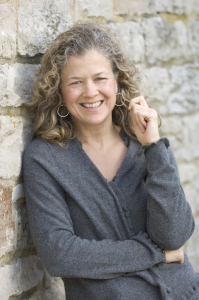Katerina interviewed poet and philosopher Emily R. Grosholz on her newest book, Childhood (Accents Publishing). For more information about Emily, you can click here.
For more information about Childhood, click here.
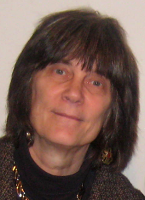 Childhood has been described as a collection of poems about children and parents, including childbirth and adoption. What draws you to these themes?
Childhood has been described as a collection of poems about children and parents, including childbirth and adoption. What draws you to these themes?
In an earlier book, Eden, I wrote some poems about the birth and infancy of my first child, who was born 25 years ago, and that led me to revisit my own childhood. This was uncharted territory for me: I didn’t know any poems in the English canon that dealt with pregnancy and nursing a baby, or with fathers and babysitters. The physical aspects of nurturing a baby, and the social aspects of sharing the tasks of parenthood, seemed fascinating to me, and worthy of a poet’s reflections. Later, we adopted our second son, and as a kind of late surprise, I gave birth to our third son and we adopted our daughter a few weeks later. At that point, I became even more interested in the texture and quality of the life of small children: how they begin to talk, how they discover friends, how they learn to make music and play sports, how they get ready to fly away. In this endeavor, I found more precedents and inspiration: Maxine Kumin, Anne Sexton, Galway Kinnell, Yves Bonnefoy, Anne Stevenson, Richard Wilbur. My children were the main inspiration, but in writing about what they helped me see, I was also trying to discern the universal aspects of childhood, the experience of all children as they grow into language and the world.
A percentage of the sale of each book goes to an organization that supports children worldwide. Tell us more.
I’d been thinking about collecting some of my poems about childhood. During the first few months when I held my oldest child in my arms, I often thought of other children with no parents, or with parents who loved them but couldn’t protect them from poverty or illness. So I started supporting organizations like UNICEF. About twelve years ago, an undergraduate student of mine at Penn State, Ashley Waddell, persuaded me to teach a course on “Children and Social Justice,” where we read not only philosophy texts but also sociological accounts of the global status of children, focusing on the tension between their right to go to school and their obligation to work so their families can survive. We also read about street children; Ashley worked with an organization in the Dominican Republic that tried valiantly to care for street children. (She went on to law school and has worked tirelessly for human rights ever since graduating; this year she and her husband welcomed their first daughter!) But from our reading and from first-hand testimony, we came to the conclusion that children who don’t have at least one adult parent or care-giver usually die before they reach adulthood: the younger generation needs the love and wisdom of the older generation to survive. So my commitment to supporting a children’s humanitarian organization intensified. I am happy to see that our pre-launch sales have already gone to support the welfare of children worldwide with a donation to UNICEF.
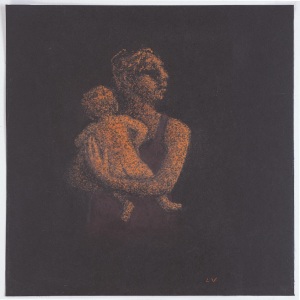 Tell us about the lovely artwork accompanying the poems. How did you match the poetry with the drawings?
Tell us about the lovely artwork accompanying the poems. How did you match the poetry with the drawings?
This past year, there was a happy coincidence. I had admired the drawings of mothers and children by my friend in Paris, Lucy Vines, for many years; one of them in particular struck me as the image I’d like to see on the cover of this imagined book. I saw Lucy last March, we talked again about the project, and she at last agreed that we could create the book together. The alternation of poems and images expresses some of the correspondences we found. Just afterwards, thanks to Philip White and Lisa Williams at Centre College, I discovered the books of Accents Publishing, and thought this press would be just right for the project. And it was! Lucy thought so too: she found the production of the book quite beautiful.
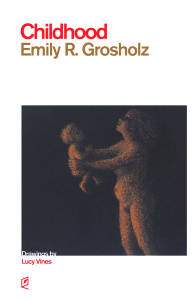 Who should read this book?
Who should read this book?
People who have just become parents, or who have just become grandparents, or who have just become empty-nesters. People who lovingly raised other people’s children and grandchildren. People who prefer poetry in meter and rhyme (slant rhyme), no matter what it’s about, or who like the interplay of Anglo-Saxon and Norman French and Latin words in a poem, or who enjoy contemplating the exchange between images and poems that speak to each other. People who worry about the 140 million orphaned or abandoned children in the world, and hope to help a little (like me). People who like to travel with their children. People who like to stay home with their children. And storks, since they carry so many babies! Oh, wait, storks can’t read. Well, maybe Sandra Boynton’s storks and hippotenuses and udderly cows and good gnus, who entertain so many children (and me) and are clearly literate since they make puns. My poems are also not without puns. In fact, thanks to my father, I can hardly talk for five minutes without making a pun. Thanks to my mother, I love babies and have enough patience to construct a metrical line.
What do you wish for all the children of the world?
What we all wish for: happiness. Here are some requirements for happiness. Grown-ups who love and take care of you so that you can think and play, and who also teach you about conflict and spark your anger in ways that make sense, so that you can grow up. Food and shelter and protection against violence. A good education that results in a love of books. Compassion. Friends. (You can’t make friends without compassion.) Chocolate. Garlic. Good medical care. Bright red mittens. A sense of humor, because no matter what we do, the world will always be intermittently terrible. And hope, because most of the time, after things are awful, they improve and sometimes even turn out to be wonderful. You can never tell.
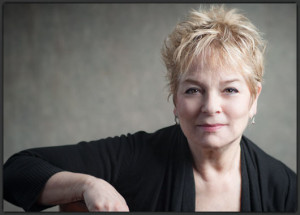 James Pfeiffer: This collection presents a new world to its reader—one that may be inhabited by some seemingly familiar characters, but which is governed by its own unique set of rules. (Where else are eggs kept under lock, key, and the protection of armed guards?) And the characters themselves are involved in a bit of world-building, and seem to take delight in it—I’m thinking of the Princess classifying plants throughout the kingdom, finding herself caught up in the “elation of naming.” I wonder if you found yourself in a similar state of elation as you defined your world. Are there pleasures in world-building as a writer? And how would you describe the pleasures of encountering world as a reader?
James Pfeiffer: This collection presents a new world to its reader—one that may be inhabited by some seemingly familiar characters, but which is governed by its own unique set of rules. (Where else are eggs kept under lock, key, and the protection of armed guards?) And the characters themselves are involved in a bit of world-building, and seem to take delight in it—I’m thinking of the Princess classifying plants throughout the kingdom, finding herself caught up in the “elation of naming.” I wonder if you found yourself in a similar state of elation as you defined your world. Are there pleasures in world-building as a writer? And how would you describe the pleasures of encountering world as a reader?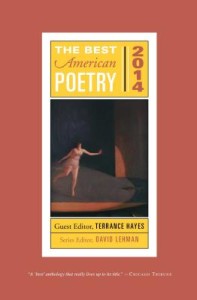
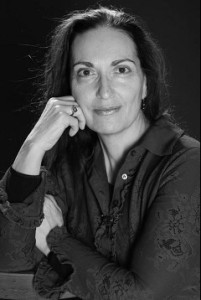
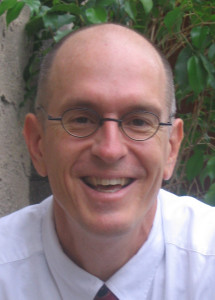
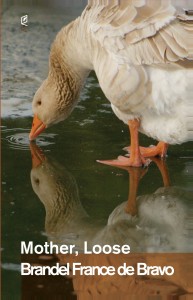
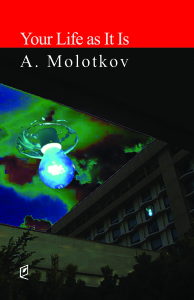
 Born in Russia, A. Molotkov moved to the US in 1990 and switched to writing in English in 1993. Published or accepted by The Kenyon Review, Mad Hatters Review, 2River, Perihelion, Word Riot, Identity Theory, Pif, and many more, Molotkov is winner of New Millennium Writings and Koeppel fiction contests, and a poetry chapbook contest for his True Stories from the Future. He co-edits The Inflectionist Review and serves on the Board of Directors of Oregon Poetry Association. Molotkov’s new translation of a Chekhov story was included by Knopf in their Everyman Series.
Born in Russia, A. Molotkov moved to the US in 1990 and switched to writing in English in 1993. Published or accepted by The Kenyon Review, Mad Hatters Review, 2River, Perihelion, Word Riot, Identity Theory, Pif, and many more, Molotkov is winner of New Millennium Writings and Koeppel fiction contests, and a poetry chapbook contest for his True Stories from the Future. He co-edits The Inflectionist Review and serves on the Board of Directors of Oregon Poetry Association. Molotkov’s new translation of a Chekhov story was included by Knopf in their Everyman Series.


